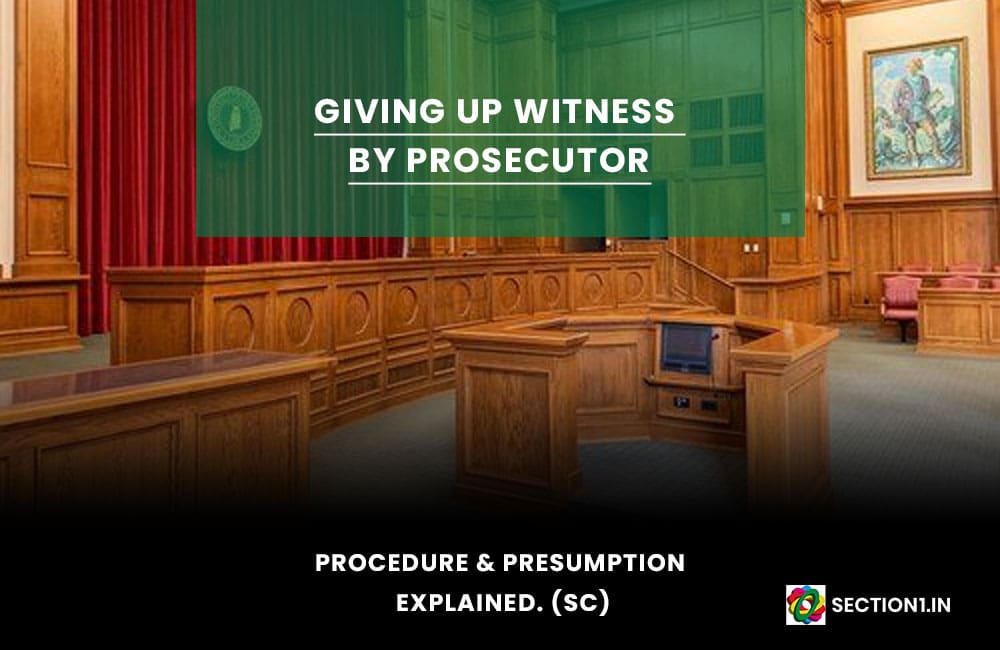17. Thus, the prosecution is not bound to examine all the cited witnesses, and it can drop witnesses to avoid multiplicity or plurality of witnesses. The accused can also examine the cited, but not examined witnesses, if he so desires, in his defence. It is the discretion of the prosecutor to tender the witnesses to prove the case of the prosecution and “the court will not interfere with the exercise of that discretion unless, perhaps, it can be shown that the prosecution has been influenced by some oblique motive.” In an extra-ordinary situation, if the court comes to the conclusion that a material witness has been withheld, it can draw an adverse inference against the prosecution, as has been provided under Section 114 of the Evidence Act. Undoubtedly, the public prosecutor must not take the liberty to “pick and choose” his witnesses, as he must be fair to the court, and therefore, to the truth. In a given case, the Court can always examine a witness as a court witness, if it is so warranted in the interests of 15 Page 16 justice. In fact, the evidence of the witnesses, must be tested on the touchstone of reliability, credibility and trustworthiness. If the court finds the same to be untruthful, there is no legal bar for it to discard the same.
Party: Rohtash Kumar vs. State of Haryana – CRIMINAL APPEAL NO. 896 of 2011 – MAY 29, 2013.
Source: Download
URL:
Files :
Download



